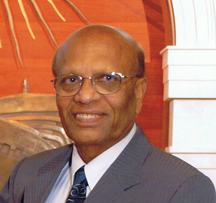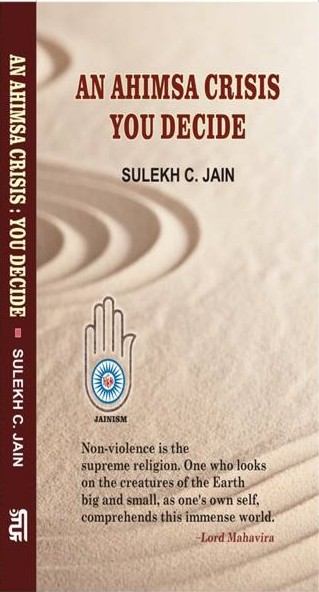In India, Jains own many businesses ranging from simple trading to big manufacturing factories. As a result, they employ a large number of people as shop floor workers. Since all life forms are equal and all feel pain and pleasure, Jains are taught to have compassion for all forms of life. But in India (I am sure everywhere else, too) some human lives are in practice considered better, worth more, more precious and superior to other humans. Some human lives can be bought or rented cheaply without the thought that they too have feelings, emotions, and pains just like we each have.
I have seen that concern for occupational, safety and health of employees and workers is significantly lacking and little consideration is normally given to this very important aspect in India. In United States and in many industrialized countries, laws and regulations have been enacted, updated and enforced to improve the health and safety of all people at work including that of the employers. Safer the environment at work, fewer the accidents, less legal, insurance and compensation expenses, fewer number of days lost due to accidents, less factory and equipment damage, better employee morale, higher productivity, more business, more profits and all around a win-win situation for everybody.
Here are a few additional examples of my observations in India.
- Once I was touring a metalworking workshop operated by a very devout and strict Jain who required himself his Pooja every day before opening his factory. He had about thirty workers in his shop working and walking in the factory wearing chappals made out of rubber tires. Because of the nature of metalworking operation, there were lots of very sharp-edged sheet metal cuttings scattered all around his workshop floor. When I saw the workers working there with their flimsy rubber chappals, I was appalled to see that if any worker stepped on those sharp sheet metal cuttings, he would have a large cut with lots of bleeding which may further lead to severe and maybe fatal infections. In the West, it is mandatory for industrial workers to use steel soles and steel-toed shoes. This may cost about Rs. 1000-2000 (I guess) for each worker, for a total investment of Rs 50,000 for the entire factory and these shoes last for at least ten years. I suggested to the owner the dangers of his workers walking in those chappals and about the need for steel sole shoes. He immediately shrugged me off as his conscience did not bother him about the harm and himsa to these five- sensed human beings. His total concentration was on one- sensed himsa (by being a vegetarian) and maximizing his profits at the cost of his own workers who bring him the profits with their sweat and blood.
- About twenty years ago, I was visiting a factory that makes various kinds of metal wires. After drawing the wire to the size, many bundles/rolls of wire are then loaded into an electric furnace for heat treatment to make the wire soft. In this case, the furnace was a big hole in the concrete floor having a diameter of four feet and a depth of about fifteen feet. All along the furnace wall (in the hole) were electric resistance wires that when hot provide heat (maybe up to 500 Celsius or more). The top rim of the furnace hole was flush with the concrete floor. The whole area in the factory was also poorly lit.
I saw the workers loading many bundles of wire into the furnace by using a manually operated crane. They all were standing very close to the top rim of the furnace which was still hot. Seeing this, I immediately realized that if any worker had a slight slip of foot, distraction (due to the telephone, noise, or talk, for example), dizziness, or heart attack, he would fall straight into the furnace and would never come out alive. I explained all this to the owner, a devout Jain. His first response was to point out to me that nothing like had happened so far. I told him not to wait for that accident. God forbid if it does ever happen, he will never be able to sleep for the rest of his life, not to speak of the legal repercussions. I also suggested a simple solution for this and asked him to make a wall of bricks about six inches high along the rim of the furnace, which he said he would do. I returned again two years later but nothing had changed. Again, the life of a five-sensed human being was not registering in his conscience.
- I visited a small textile mill, in operation to spin yarn, owned by a Jain. He had about fifty workers in his factory making yarn. As a result of the yarn spinning process, the atmosphere in the factory was extremely clouded with lint fibers, dust, and many other particles floating in the air. For me, the air inside was so bad that I had difficulty breathing. I again thought that all of these workers are breathing this dirty air and acquiring all kinds of lung diseases, including TB, and thus significantly cutting short their lives. I talked to the owner and suggested that the proper solution was to buy air masks/filters fitted for wearing over the nose, which do not cost lot of money, and to also install exhaust fans. He ignored my advice completely saying that this is done in the US, but not here. He had no concern for the lives of his workers who make lots of money for him.
The above three examples are just simple example of a pure lack of understanding on this issue. I am sure, readers know or can find hundreds of such examples.
The whole world is familiar with the leak of toxic gases in Bhopal at a factory owned by Union Carbide. Many thousand workers got injured and died, and in terms of compensation, even after nearly thirty years, the affected people are still suffering without any meaningful compensation. The Indian laws in this respect are very weak, enforcement is another story, and the people who got rich at the expense of the affected workers are the attorneys and politicians. Hardly any justice has been meted out to these poor people.
I am sure there are hundreds if not thousands of Bhopal type accidents (though perhaps not necessarily of that magnitude) that happen or are waiting to happen in India. The question that I ask is, does anyone’s conscience bother him and if yes, what are we doing about it? Another question that I ask is “How many Jain lawyers, attorneys, leaders, sadhus, activists, and physicians came to help the people affected by the Bhopal Gas Leak, then or now?
Recently I was told by a senior executive in India that when large corporations prepare proposals and bid on multibillion dollar design and construction projects, (for example for fertilizer, cement, chemical, and refinery plants), they normally factor- in about fifteen percent extra cost for industrial accidents, injuries, death, litigation, and compensation. But the same people will they hardly spend a dime to look at the reasons and occurrences of accidents, how to mitigate them, or adopt safer design practices to begin with. They are contented in paying the compensation but not in creating safer working environments. What a callousness and disregard for himsa!
Now you decide, is this behavior consistent with ahimsa?
 Dr. Sulekh Chand Jain
Dr. Sulekh Chand Jain
